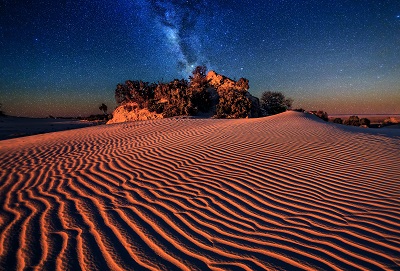
A team of Indigenous scientists from Australia, New Zealand and the United States are working to improve how settler scientists engage with Indigenous communities and knowledges.
Coen Hird, from The University of Queensland’s School of the Environment, led the writing, investigating points of tension in the relationships between Indigenous peoples and settler scientists.
“During a series of online ‘yarn sessions’ with my international collaborators, we’d often decompress and talk about common issues that we experienced across cultures as Indigenous scientists,” Mr Hird said.
“Examples might be being taken to sacred sites without permission, seeing Indigenous scientists and science generally privileged over other knowledge holders, or seeing whole fields of science and knowledges erased in the teaching materials we inherit.
“We knew a lot of scientists who would benefit being a fly on the wall listening in on our yarns, regardless of whether they were supportive of or confronted by what we were saying.
“So, we thought sharing our yarns could act as a catalyst to move the scientific community forward, but also be a source of validation and a resource for Indigenous scientists.”
Using input from across Indigenous communities globally, the team has put together a guide to better help other, non-Indigenous scientists avoid these pitfalls.
Common issues fall into categories such as claiming scientific ‘discovery’ of concepts by colonial scientists, always assuming Indigenous ways of thinking and knowing are less correct, and ignoring the time needed to build necessary relationships.
The team offers a selection of solutions for these issues, to help move the dial and foster better knowledge sharing.
“The biggest piece of advice we have is to properly centre Indigenous rights and justice in what you do on stolen lands, and not regard it as peripheral.
“Carrying on business as usual in science may seem like a good way to avoid politics, but it is actually a strong political position and reinforces power hierarchies and dominant ways of doing science, often to the detriment of Indigenous peoples and our kin.
“We, like many before us, ask settler scientists to really grapple with and engage in discussion about their worldviews, the history and philosophy of science, and how these intersect with Indigenous knowledges as equally valid ways of thinking and knowing.
“We feel that we are at a turning point in global scientific culture and ask as many people as possible to help grow a community where Indigenous scientists and Indigenous knowledges would not just survive but thrive.
“What we present are not new messages, but many need repeating and recontextualising in different fields at different times.
“With the current push for increasing Indigenous representation in science, it’s a perfect time to bring these conversations to the fore and keep them at the front of our mind.”
The research is published in The Journal of Experimental Biology.
Mr Hird would like to congratulate and thank his collaborators – Dominique David-Chavez, Shanny Spang Gion and Vincent van Uitregt – for sharing their experiences and building this resource.
Media: Mr Coen Hird, coen.hird@uq.net.au; Faculty of Science Media, science.media@uq.edu.au, +61 (0)438 162 687.



